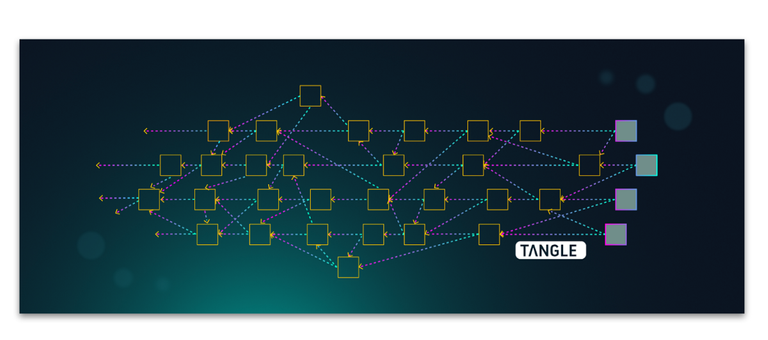Hi Steemians,
Cryptocurrency really interests me. As a former Corporate Banker, seeing the push for innovation from a centralized banking system to a trust less decentralized one is truly amazing. I remember hearing about Bitcoin for the first time in 2013, after the Silk-Road fiasco. Though I did not really know what blockchain was back then, I knew that technology moving in that direction would eventually be the future. A trust less decentralized ecosystem where one party could send a payment to another in which the value of the underlying payment was upheld by the people and not the government, eliminating the need for the middle man (banks), was, in my opinion, genius.
Fast forward to late-2016 and I delve into cryptocurrency again, except this time in more detail. I realize that though blockchain technology is great, its ability to facilitate P2P (Peer to Peer) transactions would seem to be limited. At about 4 transactions per second (TPS), Bitcoin is far off from its main competitor in the space, the fully centralized conglomerate, VISA. VISA boasts 1,667 TPS on average with a maximum load of 56,000. Comparatively, Bitcoin is just a spec of dust in its wake. Searching for an answer to this, another cryptocurrency soon began to grab my attention, Ethereum. Ethereum introduced something new to the game; Smart Contracts. Smart Contracts are essentially computer protocols intended to digitally facilitate, verify, or enforce the negotiation or performance of a contract without the need of third party interference. Couple this with an open-source, public blockchain computing platform, and you have something pretty powerful. Ethereum allowed for people to build their own cryptocurrencies and run them on the Ethereum network, opening the floodgates to many of the cryptocurrencies we know today. It really pushed the boundaries on what could be done in the crypto space and often is referred to as THE second generation cryptocurrency (Bitcoin being first gen). However, with a TPS of about 15, it still is not enough to support anything significant enough for mass adoption (other than in my opinion supply chain management, etc) and though there are lots of plans on its scalability moving forward (look up sharding if you are interested), these have yet to be implemented.
This brings us to the third generation of crypto, where crypto-assets have moved away from mining with PoW (Proof of Work) to PoS (Proof of Stake) in some cases. This brought my attention to a cryptocurrency that I think has finally figured out how to solve the problems above and truly has the ability to facilitate mass adoption on an almost infinite scale; IOTA.
IOTA is a cryptocurrency, focused on facilitating the IoT (Internet of Things). It is projected that by 2020, 75 billion machines of various kinds will be connected to one another through IoT. They will interact, send data, and perform payments to one another at blazingly fast speeds. So fast, in fact that, that the IoT is projected to need to facilitate hundreds of thousands of micro transactions a second. Think about a weather data sensor that collects data on the weather and sells it to multiple other companies within the network. It sells this data quickly and seamlessly, many times per second and does so for fractions of a cent. This is where a solution like VISA is no longer viable as the cost to facilitate the transaction is larger than the transaction itself and where a solution like IOTA really shines. IOTA doesn't rely on a blockchain but instead has created its own DAG (directed a-cyclical graph) call the Tangle. The Tangle allows for fee less transfers of not only micro-payments but of data as well and automatically scales as more people use it.

Each transaction transaction that is added to the tangle, confirms two transactions behind it, meaning that the more transactions that are part of the tangle, the quicker the tangle itself becomes. The scalability is essentially endless as long as there is continued growth in transactions.
Here is a great video explaining the tangle in a little more detail:
Though there are other cryptocurrencies attempting their own solutions to scalability, in my opinion due to its setup, IOTA has the highest probability of success. Because of this, many world governments have taken interest in IOTA, with giants like VW and BOSCH in active partnership with the IOTA Foundation. Though the Tangle is still in its infancy, it has the ability to once and for all solve the scalability issues with traditional blockchains, surpass current technology for facilitating transactions, store data, and remain decentralized all at the same time is truly amazing. It has all that it needs to be an.... ULTRA 2018 solution which is this week's Wicked Wednesday Track. Keep the party going with this amazing set by Armin Van Buuren at ULTRA Miami 2018 a few days ago (highly recommended)! Let me know what you think in the comments below and follow for more content!
Keep it movin' ;)
Stacksavenue
Music really is worthful